Recap: DOCTOR WHO’s Road To HELL Is Paved With Good Intentions

![]()
Season 9, Episode 12 “Hell Bent”
Clara Oswald is dead, and the Doctor has come home. The Time Lords have good reason to be a little concerned about that.
Doing a standard recap here is kind of pointless, since odds are good that you’ve either watched this episode — and this season, season finale and the “true” finale for Clara Oswald — and you’ve loved it, or you’ve watched it and you hate it.
(Yes, there is the option of you not having watched it at all, in which case one has to wonder why you’re reading a review of the episode, but hey! Welcome anyway! )
How you feel about “Hell Bent” (or Series 9) will — in large part, it seems — depend on how you feel about Clara Oswald and her relationship/importance to the Doctor. If you like her and wish she had gotten a better exit than “Face the Raven”, you likely enjoyed this episode a lot, because she does get a better exit here, and arguably the best exit of any Companion to date.
If you don’t like Clara Oswald, there is a chance that this episode made you angry or frustrated or some combination of the two, if the comment sections of pretty much every website that covered this episode are anything to go by.
Ultimately, you have to decide if it makes sense to you that the Doctor loves Clara so much, that his friend is so important to him, that he will go to any lengths, any lengths, to save her from death itself.
I can’t stand Rose Tyler. I think she is a terrible, terrible character, and an absolutely crappy human being, and I have never understood or believed that she is anything worth the Doctor falling in love with her. She abandons her family to run off with a man she just met, throws away the love of a good (if somewhat silly) man for, again, a man she just met, and ultimately settles for an objectively inferior copy of the man she loves so much. She’s… awful.
And yet… Rose is a hugely popular character. I don’t see it, but I’m in the minority, and that’s OK. Give me Amy and Rory and Donna, and I’m good. Give me River and Jack and Billie Piper in anything else, because it’s not the actress, it’s the awful way Rose was written, and the never believable “love” story between her and the Doctor.
Give me a Clara. Give me a Companion that doesn’t want to shag the Doctor — completely a New Series thing, BTW — and who just wants to go on Adventures in Time and Space.
Now, to be fair, pretty much every Companion abandons family and friends to go gallivanting about the Universe in the TARDIS in both Original Series and New, but it’s only been in the New that we got the “domestics”, showing us that there was an impact on those the Companions left behind. It’s one of the many changes in TV storytelling that happened in between the two series; in the Original series, audiences didn’t care about the Companions’ lives outside of the TARDIS. In today’s world, not talking about it in some way would have felt… off.
Clara straddles the two series’ styles by being both a Companion and someone who doesn’t live in the TARDIS, instead having her own life away from the Doctor. We saw that towards the end of Amy and Rory’s run, but Clara was the first Companion to say that she wanted both her own life and adventures with the Doctor, and to show that choice had consequences she would come to regret. It cost her Danny and ultimately her life, but it was the logical conclusion to the trend of those “domestics” that began in “Rose”: a show that was as much about the Companion as the man whose name is on the title.
And oh, did that divide fans. “Clara Who” was a common complaint over the last few years, and this season the production team ran with that, didn’t they?
It made for a very interesting arc for a character that the writers didn’t seem to know what to do with all the time, especially in the first half of Peter Capaldi’s first season. After “The Impossible Girl” — however you felt about the resolution of that arc — it was kind of hard to find a way to top a Companion who had fallen along the Doctor’s timestream and saved him over and over again, throughout every incarnation. Or who helped him reverse the worst Day of his life, saving him again. The whole “Am I Good Man?” arc never quite worked because the 12th Doctor wasn’t so different from the Doctors that Clara would have met in his timestream to have made her so very uncertain about him. It always felt a little off to try and make that fit, and for many fans, the addition of Danny and his conflict with the Doctor — that officer/soldier thing — didn’t hold up if you stared at it for any length of time.
Starting about halfway through last season and really roaring to the fore in this, though… the consequences of Clara becoming “Clara Who” was something new and interesting. It was a rocky road to be sure, but more often than not, this season especially, every moment that Clara became more like the Doctor was clearly going to lead her to tragedy. That tragedy would come in the form of her making the choices that led her to save Rigsy the way she did, face the Raven, and die on the Trap Street in front of the Doctor.
So the question is: based on the events of “Hell Bent”, where the Doctor walks right into Doctor of War territory to save Clara, is it believable that the Doctor would go that far to save Clara?
On one level? Yes. Without a doubt, and we’ve been building to this since the show returned in 2005.
No matter how any of us may feel about any of the Companions of the New Series, or which Doctor is our favorite, one thing has been consistent and building steadily since Rose stepped into the TARDIS: None of the Companions have just left. Even Martha, who is the only one to chose to leave did it because she was in love with the Doctor, she knew he didn’t love her and, quite frankly, the 10th Doctor was pretty damn horrible to her.
Consider:
- Rose is trapped in another dimension (breaking the Doctor’s hearts);
- Donna’s memories of the Doctor and their travels are erased (breaking the Doctor’s hearts);
- Amy and Rory are trapped in the past (breaking the Doctor’s hearts);
- River: She dies, they flirt like mad, they fall in love, they get married, all while knowing that they are experiencing their relationship in reverse, and that he knows she dies (breaking both their hearts);
- The Brigadier dies and Sarah Jane likely dies, because sadly, Liz Sladen is gone.
Not at all what you find in the Original Series, by the way, where the Doctor more of less drops the Companion off and says “Bye” most of the time. Different story styles strike again.
Add that to the way that Clara is far more involved in the Doctor’s life that any other Companion before?
No matter how you feel about Timestreams and Barn Talks and Clara Who or any of that, the fact is that Clara Oswald is the longest running Companion of the New Series, the most intertwined with the Doctor’s life and, most importantly, the logical culmination of the growing sense of loss the Doctor has been experiencing since the New Series began.
And c’mon, if it drove you nuts that the Doctor couldn’t find a way around the whole timey-wimey-Amy-and-Rory-trapped-in-the-past thing, well here you go. The Doctor looking at the whole timey-wimey-Clara-is-dead thing and saying “No,” because he’s lost too many friends. It’s where the character has been going since the 9th Doctor said, “Run”.
Now if your complaint is that Clara’s death was a good death, or that the show (Moffat) doesn’t ever treat death as something final? Well, one does have to bear in mind that the main character is essentially immortal, and asking for death to be a final kind of thing when we all accept that the Doctor isn’t ever, really, going to die is… well, kind of odd, really. I mean, do you know how many Companions died in the 26 years of the Original Series? TWO. Sarah Kingdom and Adric. Statistically the odds of a New Series Companion biting it and the Doctor not finding a way to save them is… pretty slim.
Then again, Clara did die in the Trap Street, and she still dies in the Trap Street. That is still her fate, and she will find herself there again… it’s just that she gets to have some more adventures. Trapped between two heartbeats, semi-immortal, traveling in her own TARDIS… you know, Clara Who.
Or pretty much what every fan of the show wants to get to be.
I’m… actually OK with that. Clara was entwined with the Doctor in a way no Companion has been, and her reward for saving him again and again was getting to be him, for a while anyway.
If you’re not, well, that’s OK, too.You don’t have to like Clara, or how she died, or how she not-died. Again, I can’t stand Rose. It’s OK.
Another thing you either loved or hated this Series was the continuity. While Davies started the return of the show pretty continuity-lite, as time has gone on and especially under Moffat, Doctor Who has become much more tied into the larger — and longer — continuity of the entire series. The casting of Peter Capaldi has made it even more so, as he has clearly brought his own fandom to the part and to the show. The result has been an increasing need for fans to have both a knowledge of the Original Series — a good thing in a series that has run, in some form or another, for over 50 years — and to follow the arcs of the show with greater intensity. “Bad Wolf” was quite loosely linked together; the “Hybrid” story was far from loosely linked.
“Hell Bent” brings back so very much: The Woman in the Shop, Rassilon and the Time Lords, the Sisterhood of Karn, Ashildr and the Hybrid. The Story of Clara loops in the Doctor’s entire life, and of course, his worst moment, with (heh) The Moment. Moffat teases us with the idea that we will get the “real” reason the Doctor left Gallifrey, the nature of the Hybrid, and the Doctor’s own origins. “Hell Bent” deals with all of these things, and pulls years of story hints and pieces together… a clear sign that at one point, Moffat thought Series 9 would be his last.
Some he deals with, well, less-than-stellar effect. Rassilon — one of the founders of Time Lord society and resurrected to help “win” the Time War — gets off somewhat painfully lightly here. Played by Timothy Dalton in the climax of the Tennant years, here he is played by Donald Sumpter of Game of Thrones and Being Human to somewhat less effect. Rassilon was a monster and one of the reasons that the Time Lords were regarded with such hatred during the Time War, but here, no matter Sumpter’s talent, he comes across as more a beleaguered and somewhat befuddled old man. It’s something of a tragic downfall for such a big character in the history of the show, and one that would have benefited with more time than was afforded it here. Sure, we have some great moments (“He blames you“, “How many regenerations did we grant you? I’ve got all night”, and of course, “Get off my planet”), but somehow the reduction of one of the most powerful and dangerous of the Doctor’s people lacks the power we might have hoped for. That said, the Doctor did just exile Rassilon and the Council, so they could return to plague him again.
The Sisterhood of Karn and Clare Higgins’ Ohila fare much better, but again, the continuity here is dense. Originally appearing in the Original Series episode “The Brain of Morbius”, the Sisterhood is group of immortal women whose abilities are more mental and — perhaps — magical, and whose Elixir is both what keeps them immortal and what they have shared with the Time Lords to help with their own extended lives. The novels of the Wilderness Years tell us that they were the original rulers of Gallifrey, driven out by Rassilon’s scientific revolution and maintaining an uneasy relationship with the Time Lords that replaced them. With their return in “The Night of the Doctor” there have been hints that Moffat has used that uncanonical background to inform the current portrayal of the Sisterhood, and if nothing else, the tense relationship between Rassilon and Ohila is bad blood of some kind.
Ohila, it must be said, plays into the questions of the Doctor’s origins and the Hybrid in quite the interesting way. Much of the Myth of the Hybrid entails the melding of two warrior races, which has led to not only the in-show speculation of a Dalek/Time Lord creature, but also the fan speculation of the confirmation of the TV movie’s assertion that the Doctor is “half-human on my mother’s side”.
DOCTOR WHO: Half Human? (A Fan Theory)
This subject is a prickly one for many fans, with some thinking that making the Doctor half-human is a pointless addition to the character at best. For others it doesn’t matter or makes them angry and every flavor in-between. Mr. Handley and I debated the pros and cons of such a move earlier this year, and while I definitely fall on the “Gah, really? Why?” side of the debate, I was intrigued to see what Moffat had in store for us here.
DOCTOR WHO: Half Human? (Another View)
That answer was, of course, a multiple choice of not actually answering the question, but instead implying that the Hybrid that everyone feared so much was the Doctor willing to do anything to save his Human friend. The Myth stayed myth, and while that answer suffices for the story, the question of the Doctor’s origins remains. As it should, of course, because in the end that mystery is part of the character, and one the “half-human” argument takes away to some degree. Still, consider the actions and attitude of Ohila when dealing with the Doctor here, as well as in “The Night of the Doctor” and “The Magician’s Apprentice”, and one gets hints that there is more to the relationship between the two than is spoken of.
A moment’s pondering, if you will. The Barn that we return to here — that place of Moments and fear as a superpower — where the Doctor grew up, despite being a “high-born” Gallifreyan, is implied as being a place where “the boys” without parents grow up. The woman in the barn, who clearly knows the Doctor, is not his mother, but someone who helped raise him, implying that the Doctor was an orphan in practice if not actuality. (The waters are muddied by The Woman from “The End of Time”, whom the production team regarded as being the Doctor’s Mother, but that relationship is not actually stated on-screen, so… muddied, at best.) We know from “Listen” that the child who would become the Doctor felt out of place and was not expected to amount to much, but there, as here, there are more questions raised than answered.
But then we have the curious relationship between the Doctor and Ohila. She first appeared as a child in “The Brain of Morbius”, but it is a show about time travel, so that means little if one considers the way that the Doctor interacts with her here and “The Magician’s Apprentice”. He trusts her in a way that he doesn’t trust his own people, and he defers to her in a way that makes her command to “Come out and face me, boy” quite… intriguing. Yes, she’s immortal. Yes, at this point in the timeline she is much older than he is, and yet… in so many ways she acts like both a proud and disappointed parent here. So if one wanted to look at the Doctor’s parentage in a particular way — say, child of a Gallifreyan and a member of the Sisterhood — one could see both a reason for “half-human” (Ohila is immortal but not a Time Lord and closer to “human” as an earlier kind of Gallifreyan) and a sense of not-belonging and being regarded as something lesser by his Time Lord peers. He would, after all, be a kind of half-breed, even if both his parents were essentially Gallifreyans, and certainly the science-based and arrogant Time Lords would look down on someone whose mother was one of those people.
Food for thought, if nothing else. Muddied waters, and that is how it should be.
Of course, like so much this season, “Hell Bent” is all about the relationship between the Doctor and Clara, and the performances of Peter Capaldi and Jenna Coleman. Again, however one feels about Clara as a character, there is so much magic and sadness between the two of them here that deserves praise. In the Diner, the Cloisters and the stolen TARDIS, there is moment after moment of these two fine actors laying bare the love and pain that both Clara and the Doctor feel. That Clara-shaped hole in the Doctor’s memories, made both better and worse by his realization at the end that he got to see her one more time. That reversal of the decision he made for Donna instead of with her, and the heartbreak of saying goodbye. That moment where Clara realizes how much, how far, the Doctor has gone for her sake.
That realization that they are too much alike, and too dangerous together.
That Song Called Clara.
It’s great television, let alone great Doctor Who. Yes, the Gallifrey time seems a bit short given the buildup, and on first watch the story seems a bit disjointed, but it flows better on repeated viewings. That’s in large part to the strength of Capaldi and Coleman’s performances, and the power of their characters’ emotions growing with each viewing, I think, and certainly that was the case for me. The scenes with Ashildr/Me grew more powerful, too, and here again Maisie Williams gives us a different version of her own immortal character, one far more confident in her relationship with the Doctor, and willing to challenge him. I’m not a Game of Thrones watcher, but I’ve enjoyed her performances here this season, and the evolution of Ashildr to Me and beyond. One almost wishes that we’ll see her again, but no… best to leave her traveling with Clara in their stolen TARDIS I think, and move on.
And move on we must, because the era of Clara is over, and a new one begins. It’s been a really strong season, with some stunning performances, and some great stories. We’ve had Davros and Missy, Zygons and Time Lords, love, tragedy and heartbreak. We’ve had Peter Capaldi owning the Doctor on camera, out in the world and among huge numbers of the fans. We’ve had the longest running Companion of the New Series and a powerful exit for Jenna Coleman. And we get Alex Kingston for Christmas!
It’s been a great season. Here’s to more of the same next year.
![]()

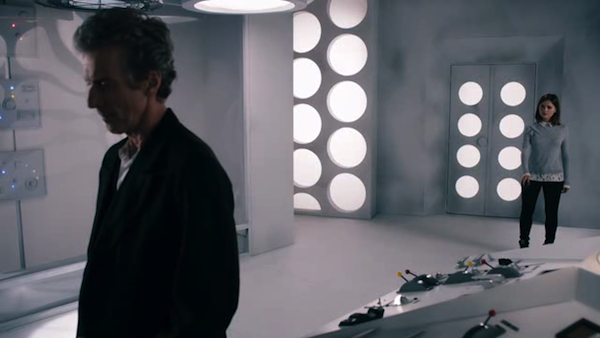

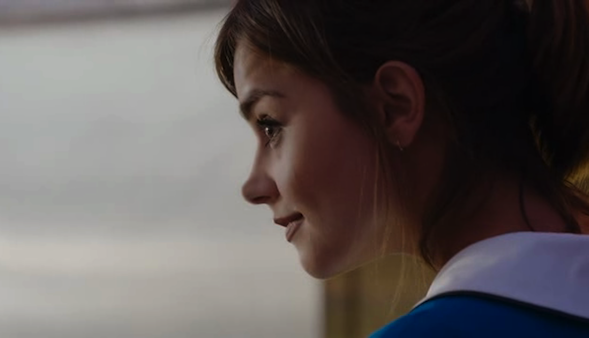
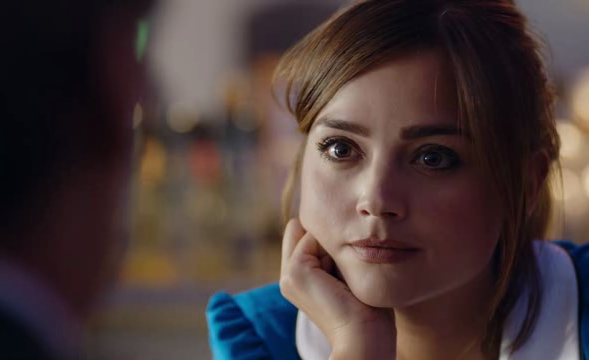
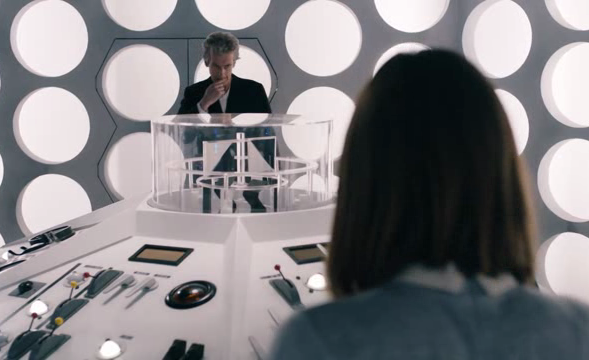
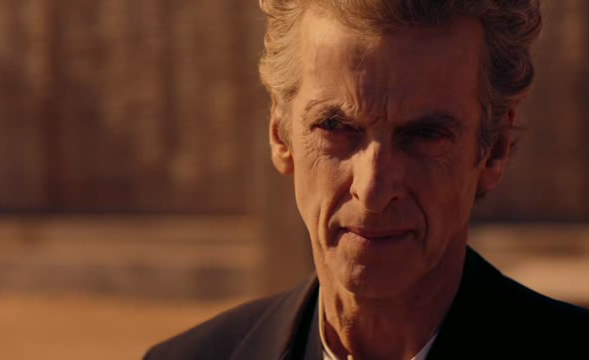
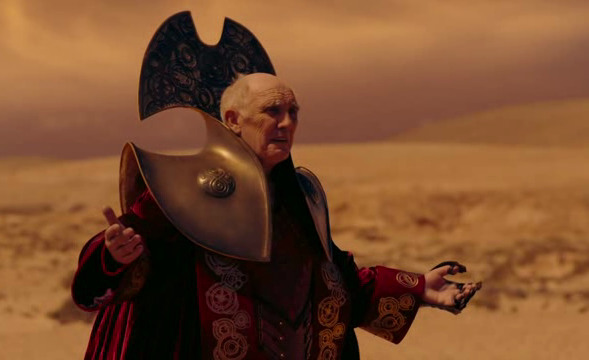
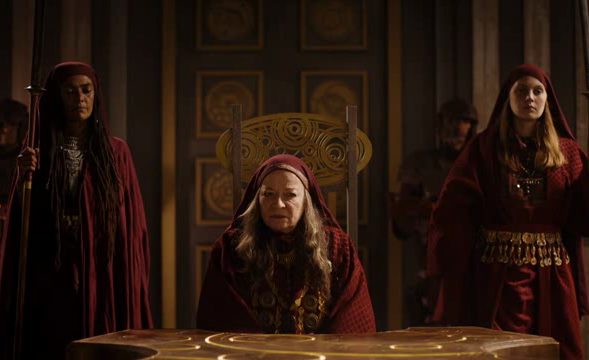
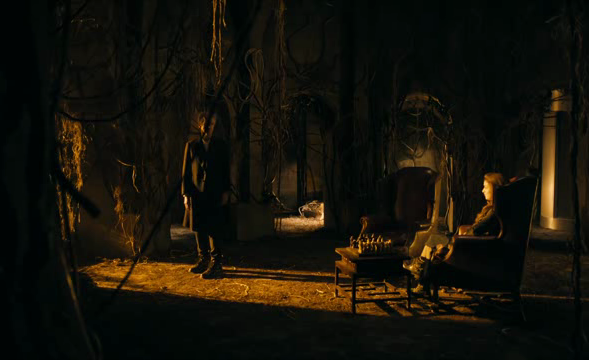
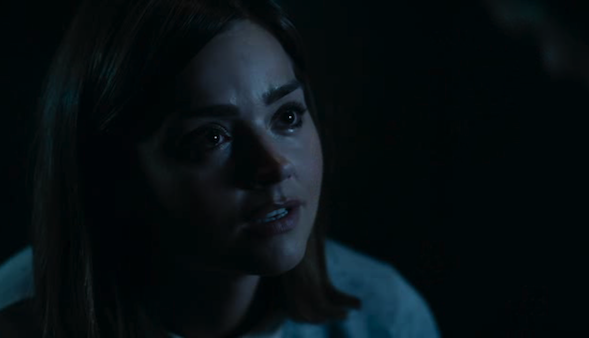
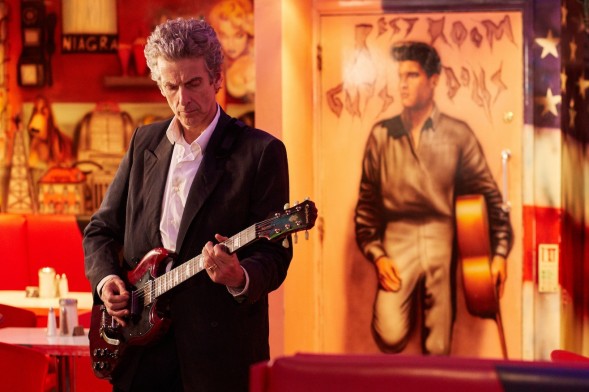
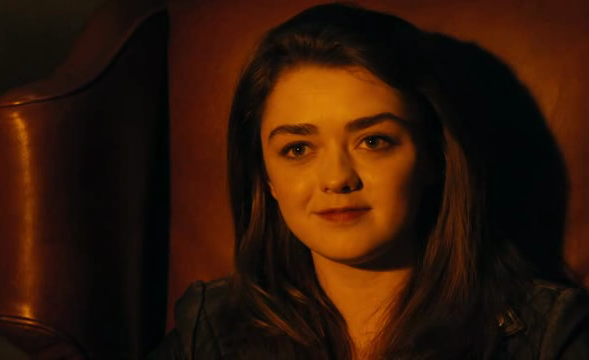
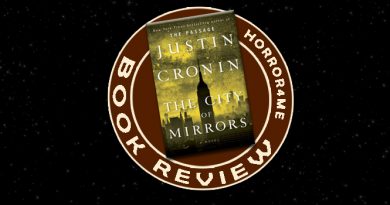
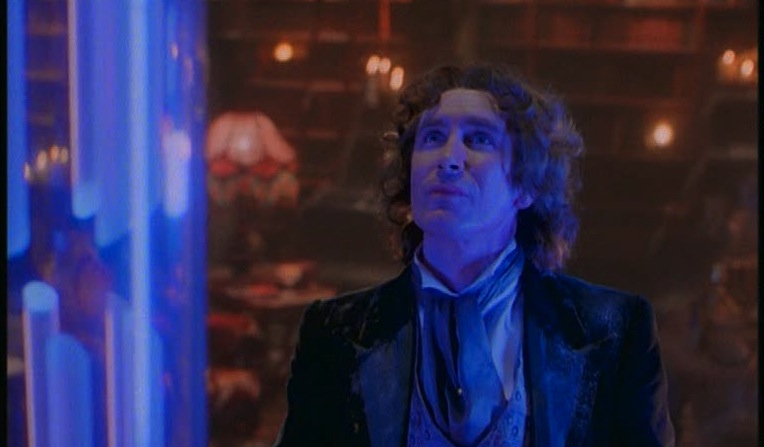

Although I wasn’t a huge fan of Face the Raven, but I thought Heaven Sent/Hell Bent were a really great pair of episodes – performances, storyline, everything. I viewed the trio back to back (because finals) and the “disjointed” final episode didn’t feel that crazy to me. Possibly because I just had an episode which was all one person in one place – it is like they saved my mental energy up for a huge cast and tons of sets in this last one. 🙂 Also, thanks for all the background in this post. I didn’t really understand the Sisterhood or catch the nuances there until I read this. It is why I always look forward to reading – to find out what I missed!